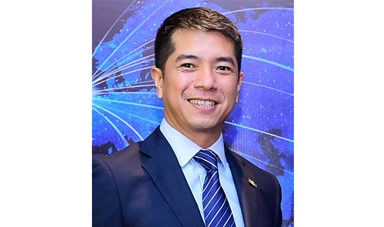Loading component...
At a glance
Kyle Pham CPA left Vietnam for Australia as a 12-year-old refugee, thinking he would never return.
Today, he lives in Ho Chi Minh City and works as a CFO for a US-owned integrated casino resort company, having also started his own fintech business aimed at the mortgage market.
It has been a circuitous journey for Pham, and this certainly wasn’t planned.
“I never had the intention to come back here,” he says.
“My family came from the South, and my father was an official in the previous south Vietnamese government, so they had political differences.”
The Phams arrived in Australia as refugees in 1982 and settled in Perth before moving to Adelaide.
It was there that Pham studied accounting at the University of South Australia, followed by an MBA at the University of Adelaide.
“I was always fascinated by business and always gravitated in that direction,” he says.
“Growing up, there was a relentless pressure from my parents to be a doctor or an engineer, but I found business interesting and thought that accounting was a good basis for a career.”
After graduating, Pham worked as an accountant for a pharmaceutical company and then in the public sector, before moving on to Deloitte.
“It was when I was with Deloitte that I first came back to Vietnam in 2002,” Pham says.
“It was a business trip, and I spent four weeks here, and then I started coming back every year after that.”
The return visits rekindled an interest in Vietnam, which combined with an opportunity to take a role at EY.
“I realised that the country had changed a lot,” Pham says.
“So I told my parents, ‘Hey, this has nothing to do with your political experience, this is my career,’ so I went.”
This was about 15 years ago. While Pham still visited his family in Adelaide twice a year before the COVID-19 disruptions, Vietnam is now his home.
“I was fluent in Vietnamese, but I had to learn many of the new words in the vocabulary that had been added since we left,” he says.
“When I arrived, I felt 95 per cent Australian and 5 per cent Vietnamese, but right now it would be 50-50, and I think it’s going to stay that way.”
Since taking his career to Vietnam, Pham has had a number of roles, working in e-commerce, the textile industry and in financial consulting with a US firm.
CPA Library resource:
Today, he is CFO for Ho Tram, a US-held private company that operates an integrated resort on the coast about two hours’ drive from Ho Chi Minh City. The property comprises a golf course, a casino and a real estate development.
“It is a dynamic business, and we have some big plans for development,” Pham says.
The challenge, he says, is that, while Vietnam is quickly developing a business culture and has a talented and enthusiastic young workforce, it still lacks English language and general business skills.
“It takes some time to develop and train the young people in business,” Pham says.
“We need to go through most things with a fine-tooth comb to make sure that everything is right.”
Vietnam’s development as a free market economy has been rapid, and there is an emerging younger generation of more affluent people. This is creating opportunities in the property market, which Pham is pursuing in his start-up fintech business called Peak Vietnam.
“Although there is a growing number of homebuyers, there is a big cost infrastructure for banks to go out and get customers, and get the loans approved,” Pham says.
“It takes a lot of time and effort, and while there are some brokers, the processes are largely manual.”
Peak Vietnam offers a scoring system for customers as a first port of call, and then uses application programming interface connectivity for pre-approvals from banks for housing finance.
“According to the risk appetite of particular banks, we can find customers, and help the customers fill out forms through the web or via an app, and get them back to the banks,” Pham says.
“We can speed up the process. What takes six weeks can be cut down to 10 hours, and that will cut out a huge amount of cost for the banks.”
Peak Vietnam’s business model takes commissions from banks, not from customers, and the start-up has built its minimum viable product with plans to roll out its business in 2021.
“The property market is very dynamic, but there are still legal and commercial limitations to the framework,” Pham says.
“That does create challenges, but it also creates opportunities, and that is why it is such an exciting place for me to make my career.”
One piece of advice
“Keep an open mind when it comes to your career path. You don’t have to follow the traditional path, as there are more choices available today. It’s important to develop the appropriate skills and grow your personal brand. Technology is an enabler. Embrace it as an opportunity for you to provide strategic value. Don’t stop learning!”

